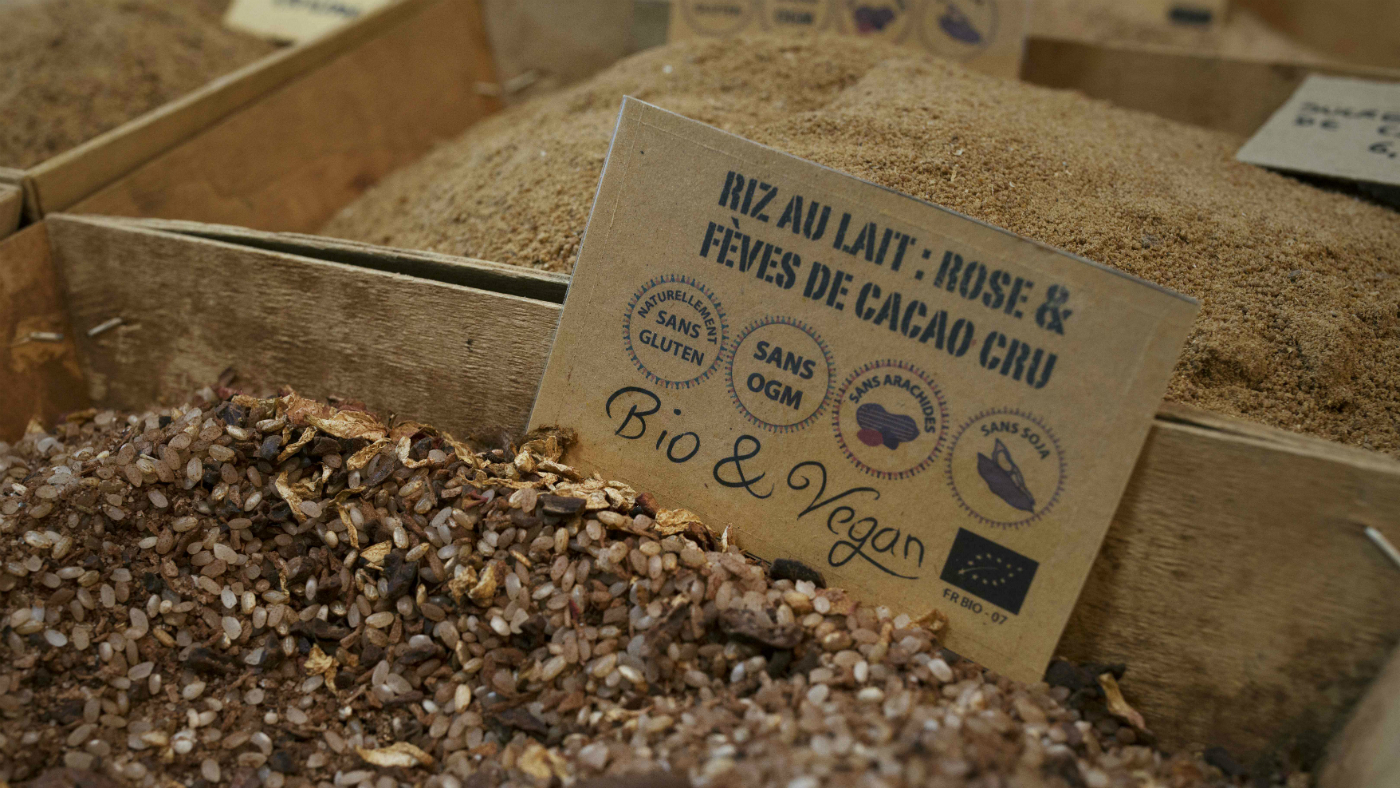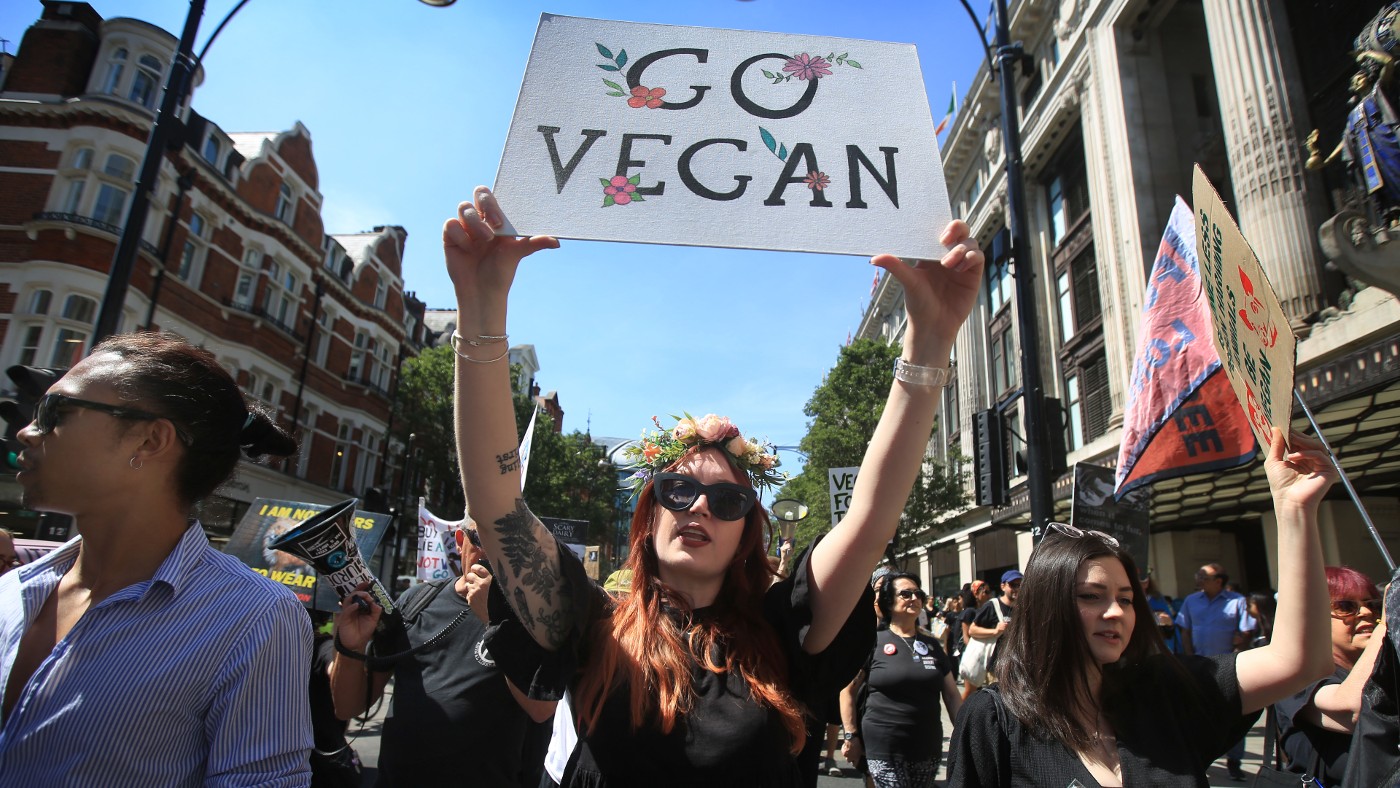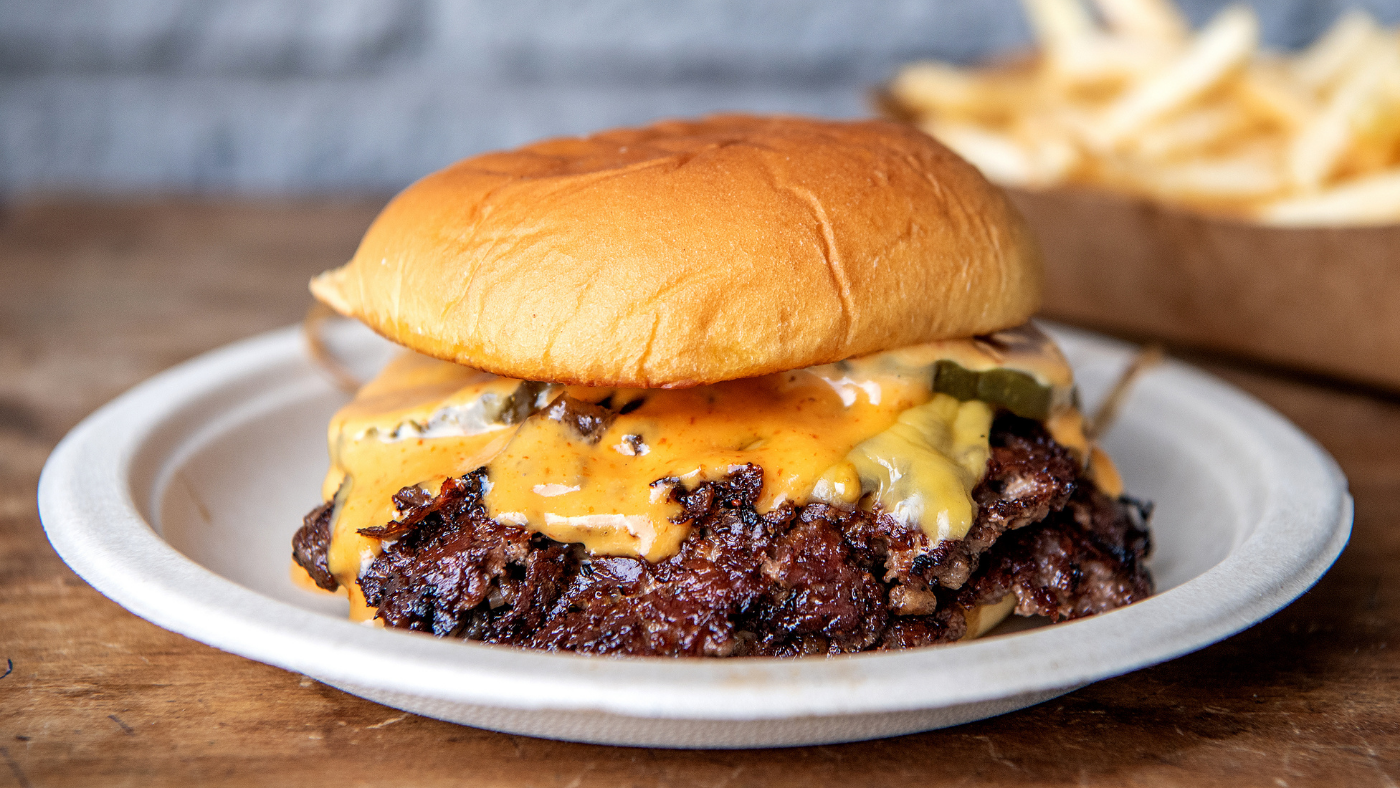What is vegan diet and are there health benefits?
Nutritionists say plant-eaters are missing out on crucial brain nutrient

A free daily email with the biggest news stories of the day – and the best features from TheWeek.com
You are now subscribed
Your newsletter sign-up was successful
Vegans and vegetarians risk being deficient in choline, a nutrient vital for brain health, a new study suggests.
The little-known nutrient affects mood, memory and muscle control, and also influences liver function. But the body does not produce enough to satisfy daily requirements, and the best dietary sources are beef, eggs, dairy products, pork, chicken and salmon, says The Daily Telegraph.
Writing in the British Medical Journal, Dr Emma Derbyshire says that many people already do not meet daily recommendations for choline and that the growing popularity of plant-based diets could make the problem worse.
The Week
Escape your echo chamber. Get the facts behind the news, plus analysis from multiple perspectives.

Sign up for The Week's Free Newsletters
From our morning news briefing to a weekly Good News Newsletter, get the best of The Week delivered directly to your inbox.
From our morning news briefing to a weekly Good News Newsletter, get the best of The Week delivered directly to your inbox.
“Physiologically, choline is critical for a number of functions across the life cycle, with choline deficiency being linked to liver disease, offspring cognitive function and potential neurological disorders,” she says.
A 2012 study by Harvard University found that people with choline-rich diets do better in memory and cognitive tests and have healthier brain tissue.
Derbyshire claims that the UK is falling behind other countries by failing to recommend or monitor dietary intake levels of the nutrient, the BBC reports.
But Bahee Van de Bor, a spokeswoman for the British Dietetic Association, insists: “You absolutely can meet the requirements with a vegan or plant-based diet.”
A free daily email with the biggest news stories of the day – and the best features from TheWeek.com
Like other nutrients and vitamins such as iron, B12, omega-3 and calcium, people eating vegan diets need to make sure they are getting enough choline in their diets, she added.Choline can be found in vegan foods like nuts, beans, and cruciferous vegetables, such as broccoli, but in much lower levels than meat and dairy products, says The Telegraph.
Nevertheless, supporters of veganism say plant-based diets are the healthier choice overall, with advantages extending well beyond animal welfare and sustainable eating. Advocates say that vegans are less likely to be overweight, have younger-looking skin and lower rates of heart disease, diabetes and cancer.So is veganism healthy?
What is a vegan?
Vegans eat a plant-based diet that excludes not just meat, but all foods that derive from animals, including dairy products and eggs, says the NHS.
According to The Sunday Times, this makes it “the most radical form of vegetarianism”, a notion reinforced by the Vegan Society, which describes it as a “way of living” rather than a diet.
All the same, veganism is becoming more mainstream. A 2016 Vegan Society survey cited by the Telegraph found 542,000 vegans living in the UK, with nearly half aged between 15 and 34.
What do vegans eat, then?
Essentially everything except for animal-derived products, although these can sneak into a surprising number of foods. The thickening agent gelatine comes from cows and pigs; isinglass, often used to make wines and beers, comes from fish bladders; shellac in sweets is secreted by the female lac insect; and castoreum, sometimes used for vanilla, strawberry and raspberry flavouring, comes from beaver anal glands.
Fruit and vegetables, and starchy foods such as pasta and rice, are usually a staple part of a vegan diet. Protein can be found in beans, lentils, chickpeas, tofu and soya. Nuts, seeds and calcium-fortified plant milk are also recommended. For those with a sweet tooth, maple or golden syrup provide an alternative to honey, which is not vegan-friendly.
Supermarkets and restaurants are increasingly catering for vegans. And health food shops and vegan websites a growing range of meat and dairy-free alternatives, from macadamia “chease” and mock kebabs to soya custard and squirty cream.
There are also hundreds of vegan cookbooks available to inspire even the kitchen-shy herbivore.
What are the health implications?
Pros
To the extent that veganism promotes the consumption of fruit and vegetables, most experts agree it has health benefits.
More generally, a vegan lifestyle tends to be low in saturated fat, especially the “deep” visceral fat stored around the abdominal area, British Dietetic Association spokesman Rick Miller told the Telegraph.
This type of fat has been linked to type two diabetes, cancer and heart disease, which are among the top causes of premature death in the UK.
Leading lifestyle doctor Chidi Ngwaba told the Telegraph the diet has also been linked to the alleviation of premenstrual symptoms, due to the elimination of external oestrogen found in dairy products.
Eating red and processed meat can increase the risk of developing cancer, says the World Health Organisation.A 2015 report found that 50g of processed meat a day - the equivalent of fewer than two slices of bacon - increased the chance of developing colorectal cancer by 18%.
And it warned that red meats were “probably carcinogenic”.
Cons
Meat remains a good source of protein, iron and zinc. Likewise, dairy products provide calcium and other essential nutrients, including vitamin B12 and vitamin D.
Eliminating meat and dairy completely can put you at risk of missing these essential nutrients.
Both the NHS and the Vegan Society say careful planning and dietary knowledge can plug these gaps.
However, many vegans require supplements to make up the loss.
According to the Sunday Times, there is also evidence that young vegan converts may be prone to developing eating disorders.
Many pro-anorexia websites promote veganism as a way of losing weight. which has caused some advocates, such as The Blonde Vegan blogger Jordan Younger, to abandon the diet.
Green living
For some, a vegan lifestyle is as important for the planet’s health as their own.
The 2014 documentary Cowspiracy argued that more than half of all greenhouse gas emissions could be traced to livestock and their by-products. The figures would “prompt fierce debate among academics”, The Independent reported at the time, and disagreement continues.
However, the UN holds livestock responsible for 14.5% of global greenhouse gas emissions, the same proportion produced by all the world’s cars, planes, boats and trains, says the BBC.
A vegan diet is also considered a more sustainable way of feeding people: research suggests a vegan can be fed for a year on a sixth of an acre of land, while a meat-eater needs 18 times as much. Theoretically, many more mouths could be fed if everybody switched to a plant-based diet.
The solution, however, is not as simple as growing grain instead of rearing cattle. According to analysis carried out by the Guardian, some rangeland is only suitable for raising livestock and many poorer communities are dependant on the trade of animals.
Research published by online news site Quartz suggests eating “plant-based diets (with a little bit of meat on the side, at most)” results in the most efficient use of land.
Animal welfare
Irrespective of claims about health and the environment, vegans often defend their diet on the grounds of animal welfare.
In 2017, the Advertising Standards Authority approved a Go Vegan World advert denouncing “humane milk” as a myth, The Independent reports.
The advert, which argues the separation of calves from their mothers causes the animals distress, reflects concern about practices in the dairy industry, says Peta, including premature death caused by over lactation and mastitis brought about by the injection of growth hormones.
For some vegans, rejecting milk and other animal products is a form of protest, with many of them considering the use of animals for human consumption morally objectionable.
Evolutionary biologist Steven Pinker believes this stance will become more widespread. “The trend of history is clear,” he told the Sunday Times. “One day in the future, people may well look back on the rearing of animals for slaughter as barbaric.”
However, other critics of the meat and dairy industries believe animal welfare concerns can be addressed by driving up standards, rather than eliminating animal-derived foods altogether.
“Our vision is for all farm animals to have a good life and be treated with compassion and respect,” says the RSPCA.
-
 Local elections 2026: where are they and who is expected to win?
Local elections 2026: where are they and who is expected to win?The Explainer Labour is braced for heavy losses and U-turn on postponing some council elections hasn’t helped the party’s prospects
-
 6 of the world’s most accessible destinations
6 of the world’s most accessible destinationsThe Week Recommends Experience all of Berlin, Singapore and Sydney
-
 How the FCC’s ‘equal time’ rule works
How the FCC’s ‘equal time’ rule worksIn the Spotlight The law is at the heart of the Colbert-CBS conflict
-
 Experts suggest the real-life Dracula was vegan
Experts suggest the real-life Dracula was veganfeature And other stories from the stranger side of life
-
 Top chef tells vegans to ‘f*** off’
Top chef tells vegans to ‘f*** off’feature And other stories from the stranger side of life
-
 Pros and cons of a vegan diet for pets
Pros and cons of a vegan diet for petsPros and Cons Plant-based food might have some health benefits for dogs
-
 ‘Cutting out cheap meat could stop animal and human suffering’
‘Cutting out cheap meat could stop animal and human suffering’Instant Opinion Your digest of analysis from the British and international press
-
 Instant Opinion: this year’s Golden Globes ‘missed the mark’
Instant Opinion: this year’s Golden Globes ‘missed the mark’In Depth Your guide to the best columns and commentary on Tuesday 7 January
-
 Instant Opinion: Boris can ‘steal’ votes from Labour
Instant Opinion: Boris can ‘steal’ votes from LabourIn Depth Your guide to the best columns and commentary on Wednesday 30 October
-
 Instant Opinion: ‘This 4th of July, Americans are fighting over what American should mean’
Instant Opinion: ‘This 4th of July, Americans are fighting over what American should mean’In Depth Your guide to the best columns and commentary on Thursday 4 July
-
 NatWest worker says ‘vegans should be punched in the face’
NatWest worker says ‘vegans should be punched in the face’Speed Read Woman who applied for a loan stunned by response from irate employee